Preparing for College Life with Autism
As more autistic students pursue higher education, understanding the unique challenges and supports needed for their success is essential. Transitioning from high school to college involves thoughtful planning, skill-building, and access to tailored resources to foster independence and academic achievement. This article explores critical strategies, therapies, and accommodations that empower autistic students to thrive in the college environment.
Early Transition Planning and Self-Advocacy Skills
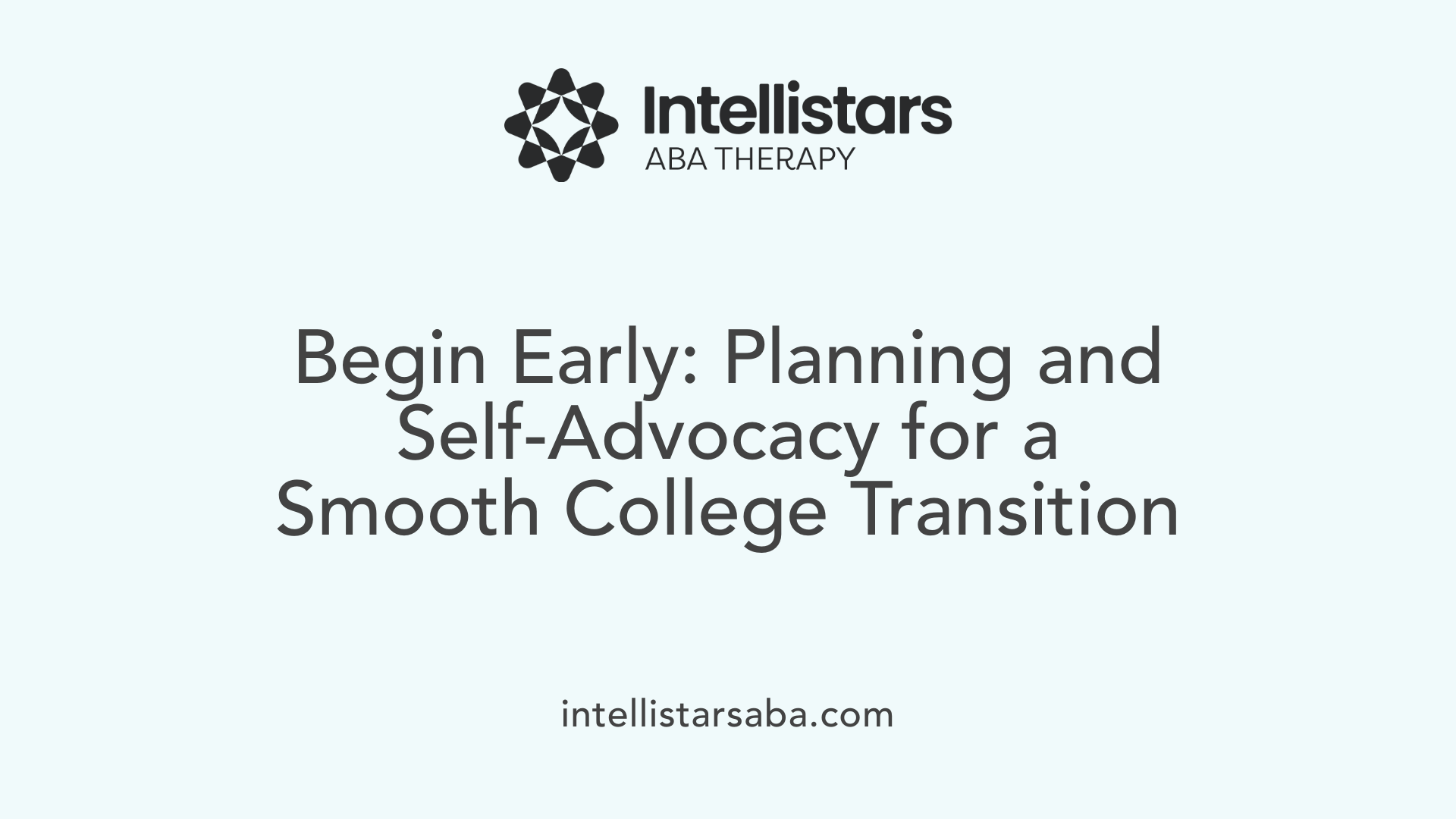
When should transition planning for autistic students begin?
Transition planning for autistic students should start as early as age 14, or even sooner. Beginning early allows ample time to develop essential skills and helps students prepare for both the academic and social challenges they will face in college. Early planning addresses the shift in support systems that occurs when students graduate high school and enter a more independent environment.
Why are self-advocacy skills important for autistic students entering college?
Self-advocacy is vital for autistic students as it equips them to understand their unique needs and communicate those needs effectively. These skills enable students to negotiate for necessary accommodations such as extended test times or sensory-friendly environments through the college’s disability services office. Self-advocacy also helps students build confidence in interacting with professors and staff, making their college experience smoother and more successful.
Importance of Preparation Before College
Preparation includes gathering documentation of their autism diagnosis to register for accommodations under the Americans with Disabilities Act (ADA). Students who learn to organize their time using tools like planners and visual schedules will manage college responsibilities better. Being proactive about understanding accommodations and practicing self-advocacy well before college can ease the transition and support independence.
Early transition planning combined with teaching self-advocacy skills lays a strong foundation for autistic students to thrive academically and socially during their college years.
Understanding and Utilizing Applied Behavior Analysis (ABA) Therapy
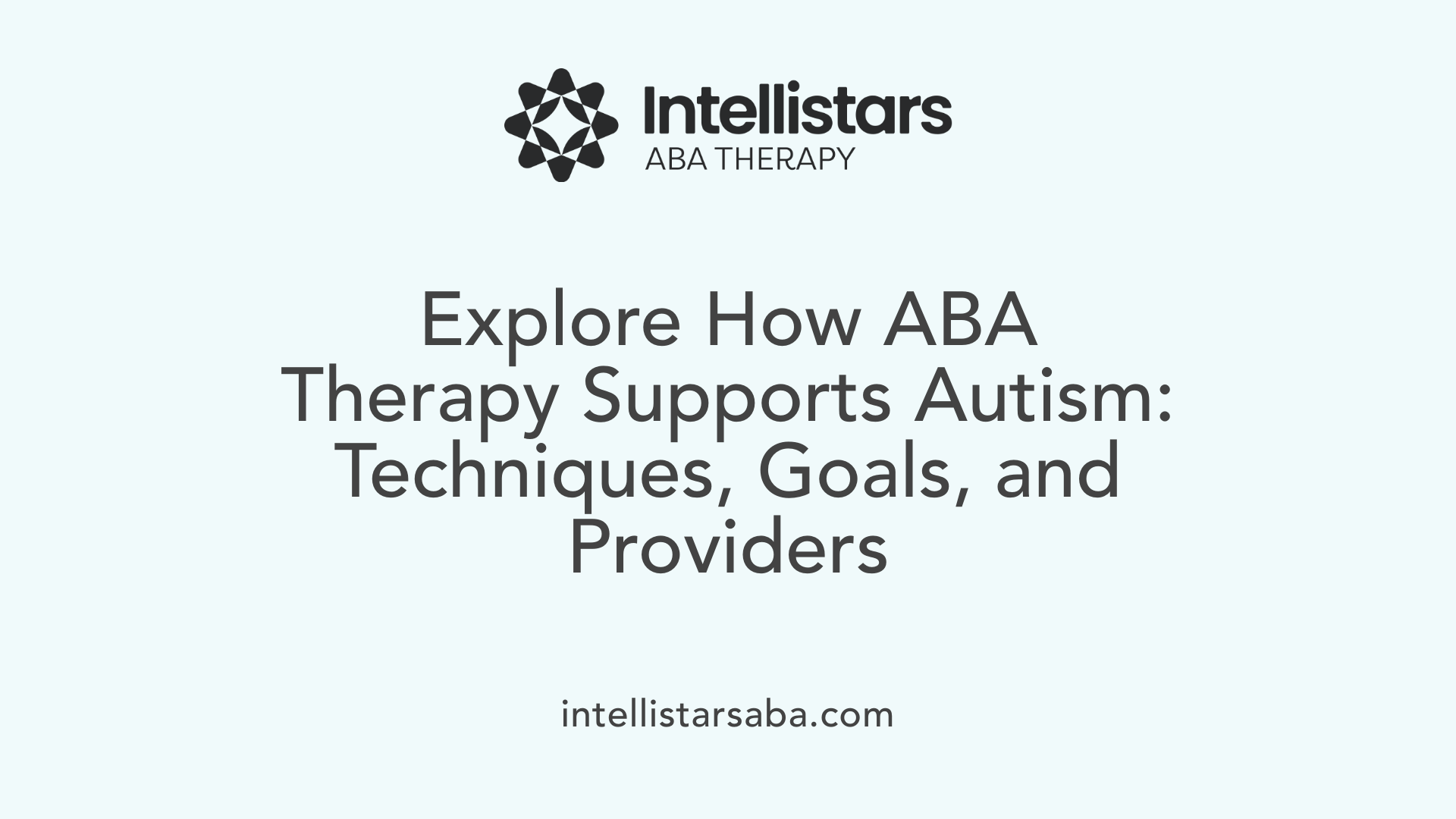
What is Applied Behavior Analysis (ABA) therapy and how is it used to support individuals with autism?
Applied Behavior Analysis (ABA) therapy is a research-backed treatment that supports individuals with autism by increasing positive behaviors and reducing negative ones. It uses strategies such as reinforcement, prompting, and functional communication training. A Board Certified Behavior Analyst (BCBA) assesses the individual to create a personalized plan that aligns with their abilities, interests, and needs.
ABA can employ structured techniques like Discrete Trial Training (DTT), which uses step-by-step instructions with rewards, or more natural approaches like Pivotal Response Treatment (PRT), focusing on essential skills such as initiating communication. Early intervention, often intensive for toddlers, has been shown to improve socialization, communication, and language skills. Modern ABA approaches aim to be engaging and natural, promoting independence and inclusion while respecting neurodiversity.
What are the primary goals of behavioral analysis therapy for autism?
The main objectives of ABA therapy are to increase helpful and socially meaningful behaviors—such as communication, social skills, and daily living skills—and to decrease challenging behaviors that may interfere with everyday life. Therapy focuses on building foundational skills in language, self-care, and community participation through individualized, evidence-based techniques like positive reinforcement and systematic assessment. By fostering these skills, ABA promotes greater independence and improved quality of life.
Who typically provides ABA therapy and what qualifications do they have?
ABA therapy is usually delivered by professionals certified as Board-Certified Behavior Analysts (BCBAs), licensed behavior therapists, or specialists trained in autism interventions. These providers often hold advanced degrees in psychology, education, or behavior analysis and have undergone extensive training and certification, including supervised practical experience and exams.
Behavior therapists often work under the guidance of a BCBA and may be specially trained in particular ABA methods. Family members and caregivers also commonly participate in training to extend support beyond therapy sessions, enabling skill development and behavior management in everyday environments.
Academic Accommodations and Support Services in College
How do colleges support autistic students through accommodations?
Colleges support autistic students primarily through their disability services offices, which coordinate accommodations tailored to individual needs. These accommodations may include extra time on exams to address processing speed challenges, access to note-takers for capturing lecture material, and the creation of sensory-friendly environments such as quiet testing rooms or dimmed classroom lighting.
Proper preparation is essential for accessing these services. Students must obtain documentation of their autism diagnosis and register with the disability services office under the Americans with Disabilities Act (ADA). This registration ensures legally protected accommodations throughout their college education.
Professors and campus staff play a vital role by collaborating with disability services to implement and respect these accommodations. Understanding that autism-related behaviors are responses to sensory overload or environmental factors—not intentional misbehavior—fosters a supportive academic atmosphere.
Additionally, adjustments to living arrangements, such as providing single dorm rooms or modifying dorm lighting, can help students manage sensory sensitivities beyond the classroom.
By leveraging these resources and supports, colleges empower autistic students to navigate academic demands more successfully and build greater independence.
Managing Executive Functioning Challenges and Sensory Sensitivities
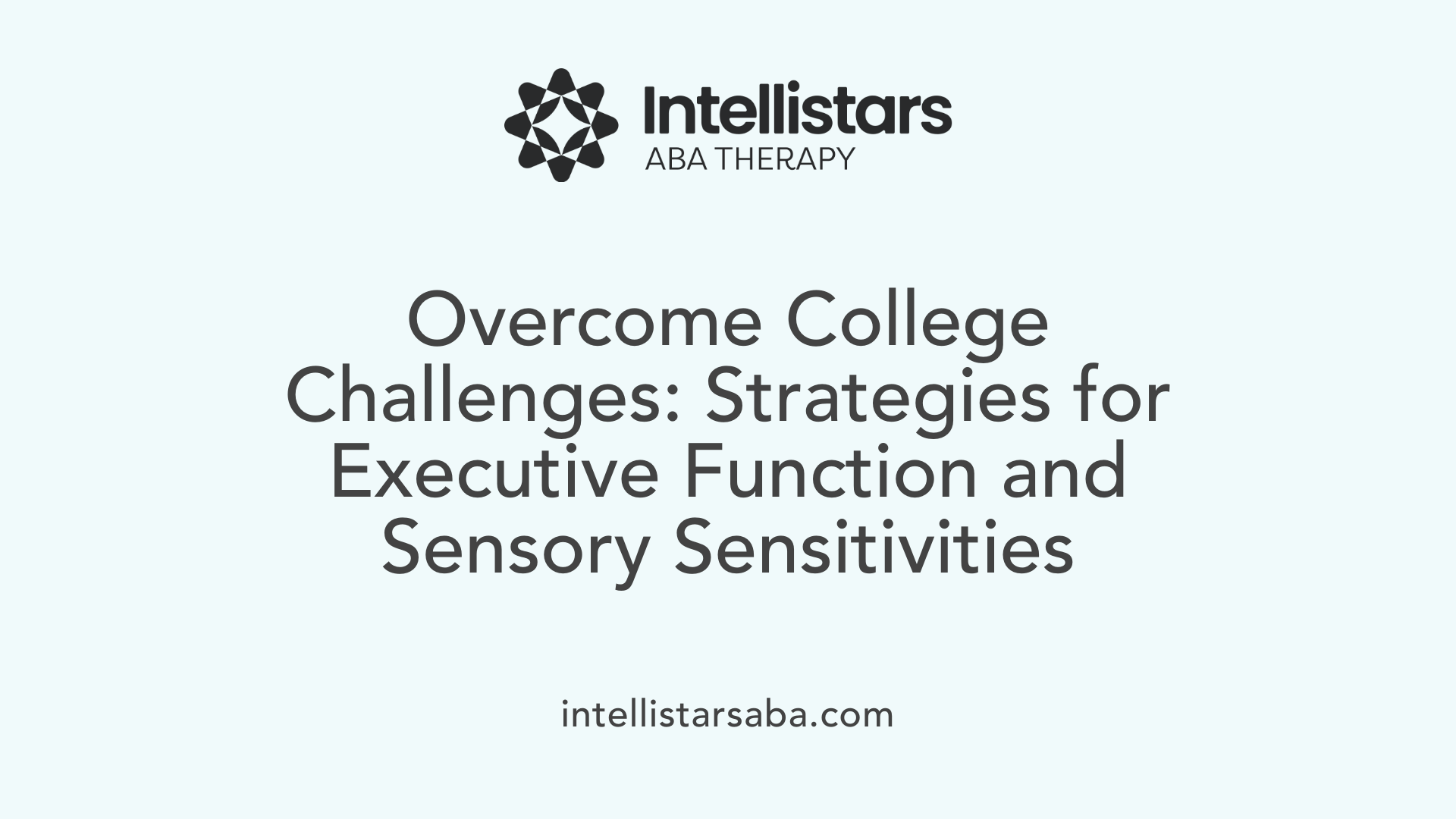
What Executive Functioning Difficulties Do Autistic Students Face?
Autistic students often experience challenges with executive functioning, which includes difficulties with organization, time management, and multitasking. These challenges can make it harder for them to manage the demands of college life independently.
How Can Organizational Tools Help?
Using organizational tools such as visual schedules, planners, and alarm clocks can support autistic students in managing their time and responsibilities more effectively. These tools provide structure and reminders, helping students stay on track with assignments and deadlines.
What Are Sensory-Friendly Living Arrangements?
Many autistic students have sensory sensitivities that can affect their comfort and focus. Living arrangements like single dorm rooms reduce sensory overload, and adjustments to dorm lighting can create a more calming environment. These accommodations help students better manage sensory inputs and reduce stress.
Together, addressing executive functioning challenges with appropriate strategies and providing sensory-friendly living spaces can greatly enhance the college experience for autistic students, fostering greater independence and success.
Therapeutic Approaches Supporting College Transition and Independence
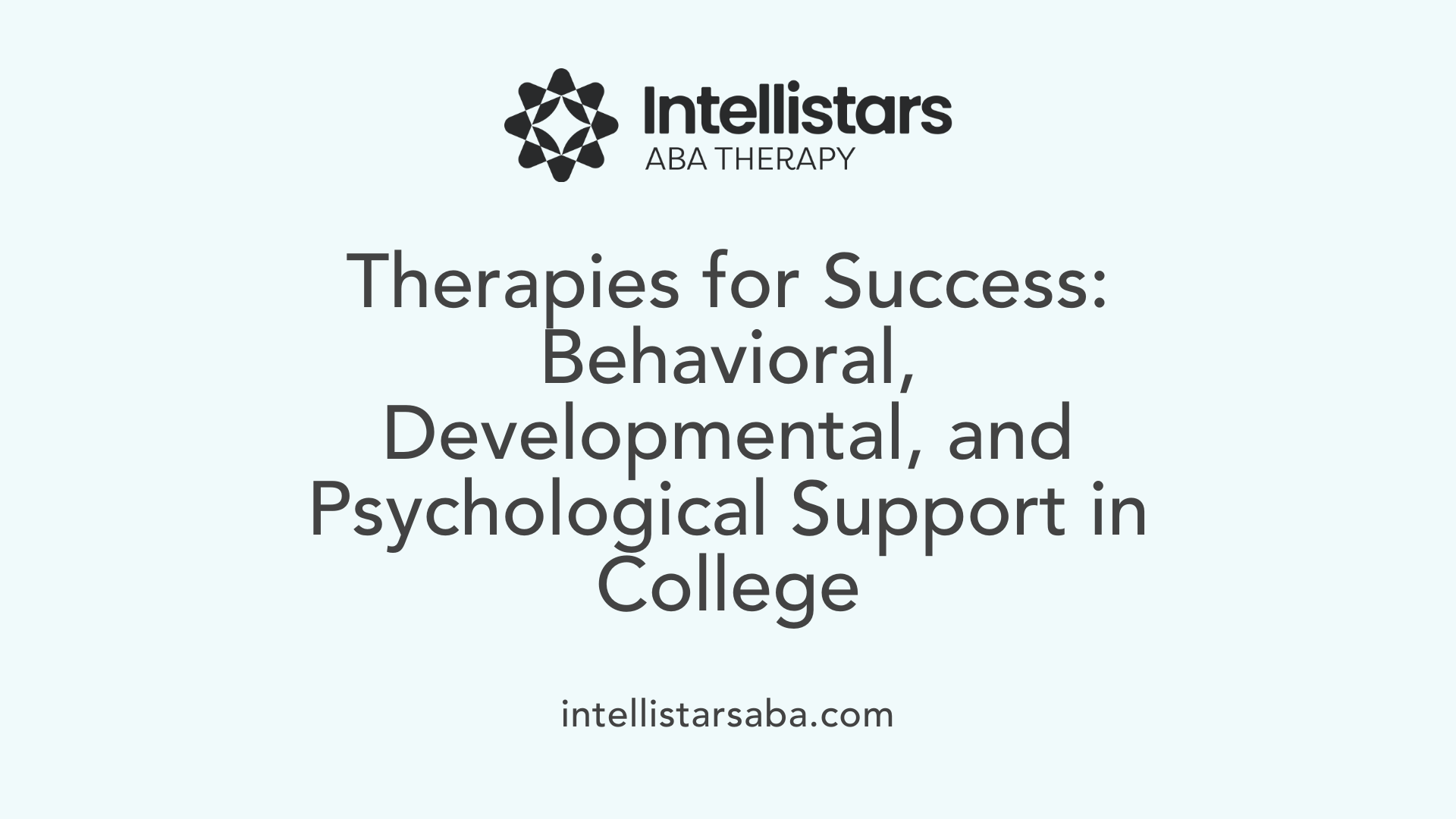
How Do Behavioral Treatments Support Autistic Students in College?
Behavioral treatments, such as Applied Behavior Analysis (ABA), play a crucial role in supporting autistic students transitioning to college. ABA encourages positive behaviors through structured methods like discrete trial training (DTT), which breaks skills into manageable steps with rewards, and pivotal response training (PRT), a natural approach focusing on key communication skills. These therapies help students develop self-advocacy and manage behaviors related to sensory overload and executive functioning challenges.
What Developmental and Educational Therapies Aid Independence?
Developmental therapies including speech and language therapy enhance communication skills vital for college success. Occupational therapy supports independence by developing daily living skills and addressing sensory sensitivities, often through sensory integration techniques. Educational approaches like TEACCH provide visual routines and consistent environments, helping students manage college responsibilities and reduce anxiety. These therapies collectively support organizational skills and adjustment to new academic settings.
How Are Psychological Approaches Utilized?
Psychological therapies such as cognitive-behavioral therapy (CBT) address common co-occurring mental health concerns like anxiety and depression. CBT teaches students strategies to alter negative thought patterns and respond adaptively to stress, which is essential for managing the social and academic pressures of college life. These approaches complement behavioral and developmental therapies, creating a comprehensive support system to foster independence and success.
| Therapy Type | Focus Area | Role in College Transition |
|---|---|---|
| Behavioral Treatments | Behavior modification, communication skills | Enhance self-advocacy, manage behaviors, promote independence |
| Developmental Therapies | Speech, occupational skills, sensory integration | Improve communication, daily living skills, and environmental adaptation |
| Psychological Approaches | Mental health, coping skills | Alleviate anxiety/depression, support emotional well-being |
Creating Inclusive and Supportive College Environments
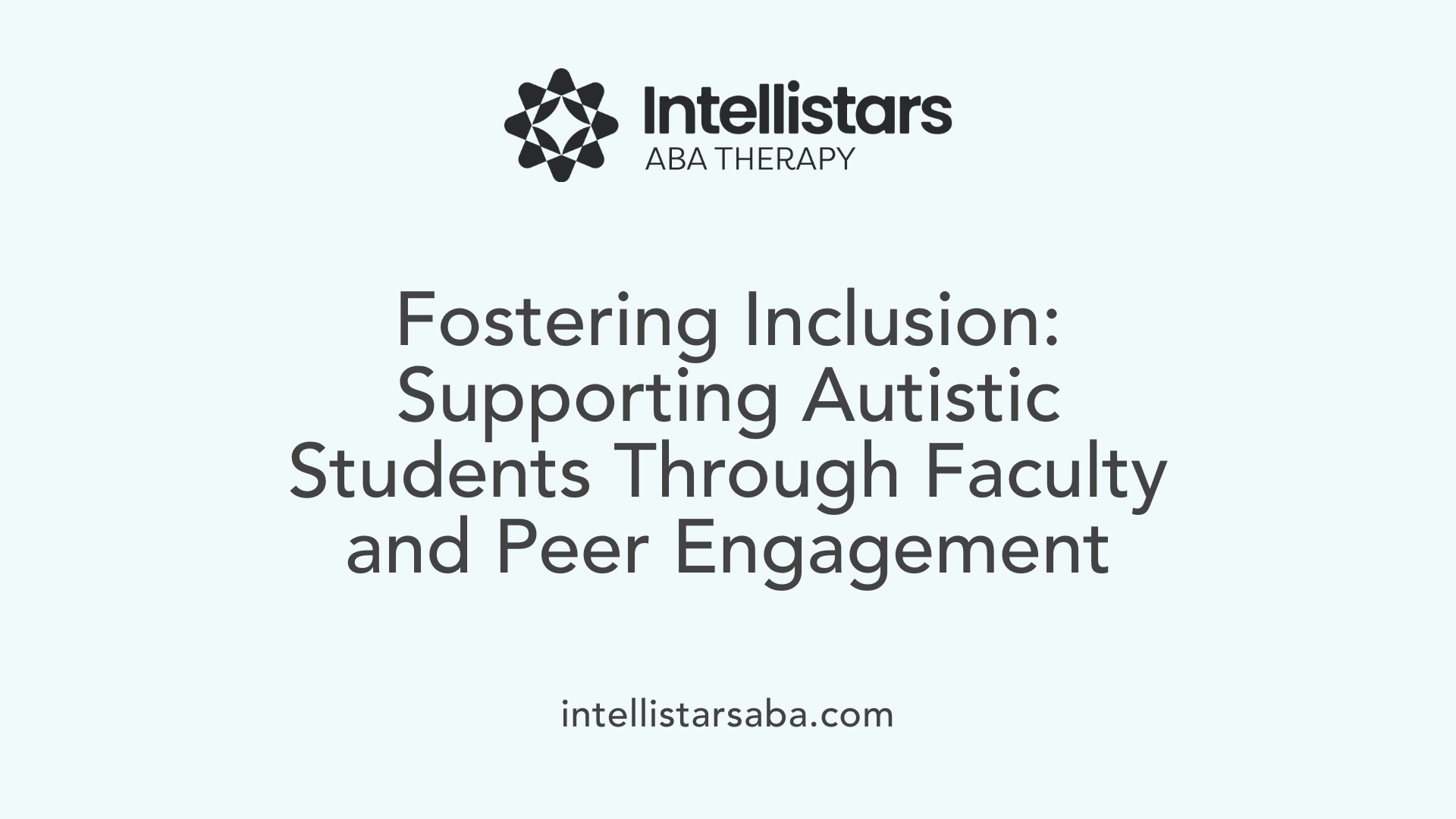
How Can Faculty and Staff Support Autistic Students in College?
Faculty and staff play a vital role in fostering an inclusive college environment for autistic students. Collaboration with the college's disability services office ensures that accommodations such as extra time on tests, note-taking assistance, and sensory-friendly classroom setups are consistently provided. Professors who understand autism recognize that behaviors like repeated questions or sensory meltdowns are responses to environmental factors—not intentional disruptions—cultivating a compassionate atmosphere.
What Role Does Promoting Social Acceptance Play?
Creating a welcoming social environment is essential for autistic students’ success. Encouraging peer interactions and promoting acceptance helps reduce feelings of isolation and builds supportive networks. Teachers and staff can incorporate ‘About Me’ sheets to help peers better understand individual preferences and needs, fostering empathy and mutual respect.
What Strategies Aid in Managing Social and Sensory Challenges?
Managing social and sensory challenges requires tailored approaches. Visual supports like written rules, visual schedules, and social stories clarify expectations and reduce anxiety. Sensory sensitivities can be addressed by modifying living spaces—using single dorm rooms and adjusting lighting—and providing quiet zones on campus. Clear, positive communication techniques, such as using descriptive praise and avoiding negative commands, support positive behavior and reduce misunderstandings.
By combining faculty cooperation, social inclusion, and practical sensory management, colleges can create environments where autistic students thrive academically and personally.
Supporting Success and Independence Beyond High School
Going to college with autism is a significant milestone that requires careful planning, personalized therapies, and comprehensive accommodations. Early transition preparation, combined with evidence-based behavioral and developmental therapies, equips students with the skills and confidence needed to navigate academic and social demands. Colleges play a critical role by providing appropriate accommodations and fostering an inclusive environment where autistic students feel understood and supported. With these resources and compassionate support systems in place, autistic students can achieve meaningful independence, enrich their college experiences, and lay strong foundations for their futures.
References
- Going to College With Autism
- Autism & College
- Treatment and Intervention for Autism Spectrum Disorder
- Autism in the classroom: Strategies for success
- Applied Behavior Analysis (ABA)
- Who Qualifies for ABA Therapy: Eligibility Guide
- Applied Behavior Analysis (ABA)
- The Controversy Around ABA
- Treatment and Intervention for Autism Spectrum Disorder






